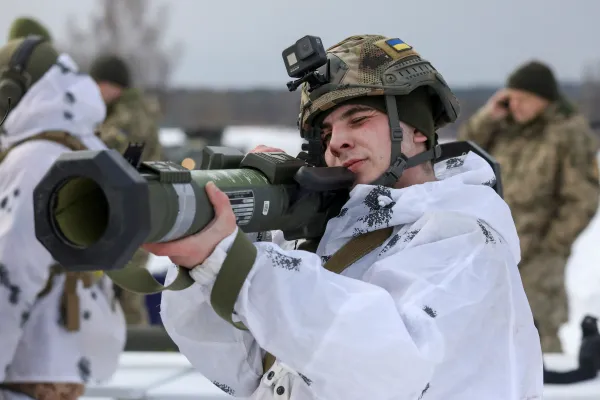By Ryan Fedasiuk
For weeks leading up to the invasion and even in the hours afterward, the crisis in Ukraine was flattened into an academic debate, abstracted into a case to be studied. The most politically scientific and least affected among us have been offered the luxury of musing about tangential questions:
What might the crisis in Ukraine imply for Taiwan’s security? — as if the immediate cataclysm unfolding in Europe was not interesting enough.
How will Moscow’s decision to invade affect its relationship with Beijing or New Delhi? — as if diplomacy ought to be the object of study, rather than the war it serves to prevent.
Is Vladimir Putin a rational actor? — as if, at this juncture, the distinction really matters.
After a sleepless night spent reading takes about every modern geopolitical issue under the sun I found, honestly, that I could not care less about any of them. Can people get to safety? Where are the medical facilities? How many refugees can the United States admit? — These are the questions that matter. War may be an object of academic study, but it is first and foremost a human catastrophe.
My grandparents, who fled war-torn Ukraine, came to this country so that I might have a better life. In high school I began to love foreign policy and reveled in role-playing Congressman and UN Delegate. I came to Washington with a deep interest in the business of statecraft and a desire to make the world a better place. Then in college and now as an M.A. student at Georgetown, I fell down the rabbit hole of security studies. The problems were complex; the histories and theories engrossed me. I spent years studying Russian, then pivoted to Chinese. Slowly, priorities emerged: Protect our interests. Promote democratic values. Maintain stability. Avoid war.
The most basic purpose of International Relations as an academic enterprise is to explain war so that it may be prevented. And yet we learn on day one of practically every IR program that war is not easily explained — that it is an inherently unstable interaction of emotion, chance, and reason. And now, after all the seminars on threat perceptions, global institutions, civil-military relations, nuclear deterrence, and intercultural communication; it seems we are left grasping and squinting inscrutably at the least common denominators: Clausewitz, Machiavelli, Munich, and the Melian Dialogue.
Like almost every other student of international relations, my professional and academic interests have evolved with time, and now encompass issues far outside the scope of the outbreak and termination of war. I spend a lot of time thinking about China, technology, supply chains, and economic statecraft. Few of these issues are meaningfully related to the Russian invasion of Ukraine.
So, I will not attempt to contort this war into oblique professional relevance, and I suggest you refrain from the same. In this moment we ought instead recognize, with the same flavor of disillusionment and existential sobriety that followed the wars of the early 20th century, that our esoteric academic pursuits have become untethered from the fundamental and life-altering questions that necessitated this field in the first place.
The irony, of course, is that many IR scholars do debate the origins of warfare between states. In the pages of journals like Foreign Affairs, International Organization, and Survival, academics often advance dueling theories of international relations – realism, liberalism, constructivism, and critiques based on everything in between. But unswerving loyalty to theoretical constructs has bred an academic urge to fit reality to theory. Times of crisis, at least, have a habit of dispelling the madness: It is more important to do right than to be right.
Short of humanitarian activism, there is little to be done when deterrence fails. Weary and overwhelmed with Wednesday night’s news coverage, I followed the lead of every other Beltway security professional. I took to Twitter. Watching the first bombs detonate over Kharkiv, I lamented that few events have so totally shattered my worldview. Someone I do not follow commented:
“Realists 1, other IR ‘schools’ 0.”
Congratulations.
Ryan Fedasiuk is an M.A. student in the Security Studies Program at Georgetown University.
Credit | Georgetown Security Studies Review

